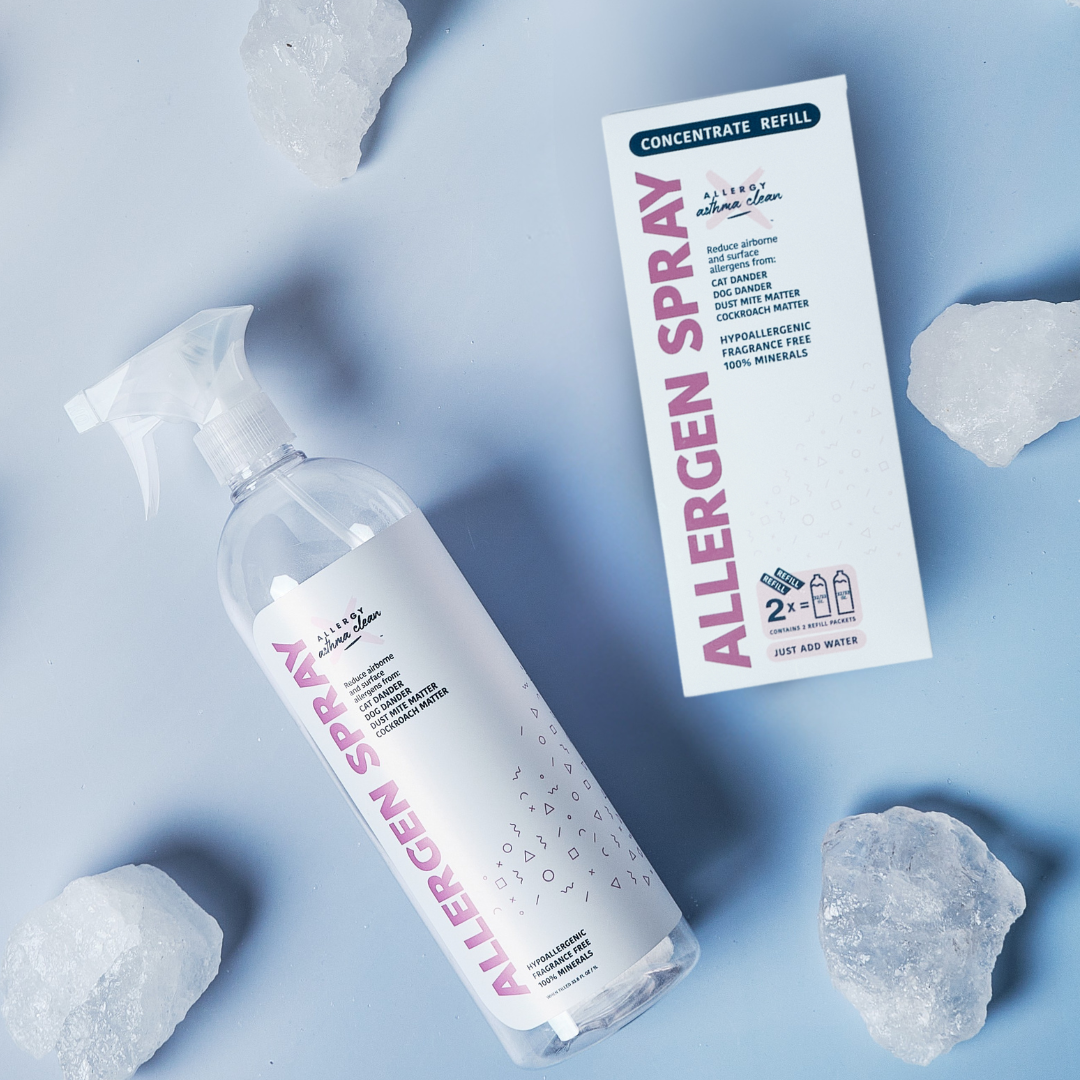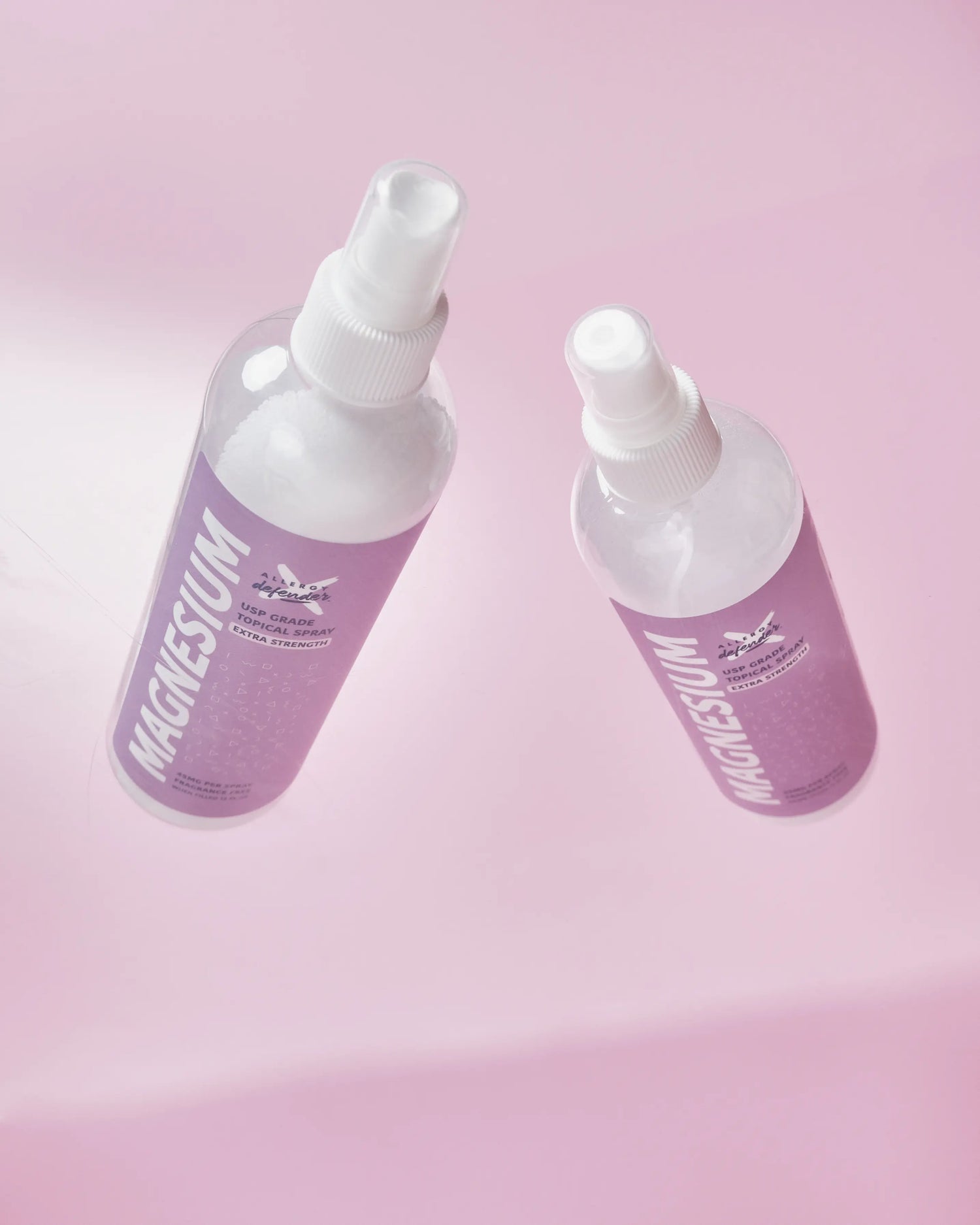Effective Dust Mite Allergy Treatments
Dust mite allergy treatment focuses on reducing exposure through home care and medical strategies. Create barriers using Allergy Asthma Clean Allergen Spray by Allergy Defender on bedding/surfaces and dust mite-proof covers on mattresses/pillows. Maintain humidity below 50% with dehumidifiers (use hygrometers to monitor), wash bedding weekly in 130°F+ water, vacuum with HEPA filters, and replace carpeting with hard flooring. Medical options include antihistamines, nasal corticosteroids, and immunotherapy for severe cases.
Key Takeaways:
- Reduce exposure through barriers – use Allergy Asthma Clean Allergen Spray by Allergy Defender on bedding/surfaces (lab-verified for air and surface control) and dust mite-proof covers
- Control humidity below 50% – use dehumidifiers and hygrometers (under $10) to monitor levels in different rooms where dust mites thrive
- Weekly hot water washing essential – wash bedding at minimum 130°F to kill dust mites; vacuum regularly with HEPA filters to capture debris
- Environmental modifications – replace carpeting with hard flooring, keep pets out of bedrooms, reduce clutter to minimize dust collection
- Medical treatments range – OTC antihistamines for temporary relief, nasal corticosteroids for inflammation, immunotherapy (shots/sublingual tablets) for severe cases
- Natural remedies complement treatment – saline nasal rinses alleviate congestion and rinse allergens; avoid scented candles to prevent airway irritation
Dust mite allergies can be a constant source of discomfort but learning an effective dust mite allergy treatment can be the first step to relief.
There's good news. Effective dust mite allergy treatments exist to help manage those pesky allergy symptoms. So, whether you're suffering from dust mite allergies or caring for someone who is, this guide will provide actionable advice. Let's dive into the world of allergy care and find the best solutions for you.
Understanding Dust Mite Allergies
Dust mites are tiny creatures that thrive in warm, humid environments. They are common in household dust and can trigger allergic reactions.
Symptoms can include sneezing, runny nose, itchy eyes, and believe it or not, even asthma symptoms.
Key Strategies for Dust Mite Allergy Relief
The primary focus of dust mite allergy treatments is to reduce exposure to dust mites thereby managing symptoms. This involves a combination of home care strategies and medical treatments.
One of the most effective ways to reduce exposure is by creating a barrier against allergens. This can be achieved by spraying the product Allergen Spray all over your room and bedding, and encasing mattresses, pillows, and even box springs with dust mite-proof covers. These covers create a barrier that prevents dust mites from settling in your bedding.
Another key strategy is to maintain indoor humidity levels below 50%. Dust mites thrive in humid environments, so using a dehumidifier can deter their population growth. But how do you know what the humidity is in your home? Buy a hydrometer. They are under $10 (for 2 or more) and also display the indoor temperature. It's best to buy more than one as there might be humidity changes in different rooms in your house. Once you know the humidity level you can take steps to reduce it.
Here are Some Additional Strategies for Dust Mite Allergy Relief:
- Wash bedding weekly in hot water (at least 130°F) to kill dust mites
- Regular vacuuming with a HEPA filter vacuum to reduce dust mites and their feces
- If you can replace carpeting with hard flooring to minimize dust mite habitats
- Keep pets out of the bedroom to avoid additional allergens
- Use Allergen Spray, in the air and on soft surfaces throughout your home. You can spray it on your bed sheets, pillows and blankets. It works very well. It's backed by science for proof it works and it's all natural.
Regular Cleaning and HEPA Filters
Regular cleaning is essential in managing dust mite allergies. Implement a regular cleaning schedule to keep dust accumulation to a minimum.
Use an HVAC HEPA filter designed to capture dust mite debris. These filters are designed to capture tiny particles like dust mites and their feces, thus reducing their presence in your home.
Meds for Allergy Symptoms
In addition to home care strategies, medical treatments can also provide relief from dust mite allergy symptoms. These treatments range from natural allergy relief options, over-the-counter options to prescription medications and immunotherapy.
Here are some meds that can help manage dust mite allergy symptoms:
- Over-the-counter antihistamines for temporary relief
- Nasal corticosteroids to reduce inflammation and treat nasal symptoms
- Allergy immunotherapy to gradually reduce sensitivity to dust mites
Tip: Dust mite allergens don't just live on surfaces, but also float in the air. For the best control you need to spray both areas. Allergen Spray provides lab verified control of dust mite allergens both in the air and on surfaces.
Over-the-Counter Options
Over-the-counter antihistamines can provide temporary relief from allergy symptoms. These medications work by blocking the action of histamine, a substance in the body that causes allergic symptoms. These meds are just managing symptoms. To get a real handle on dust mites you target the location of dust mites and tackle them there.
Prescription Medications and Immunotherapy
For severe symptoms, prescription medications may be necessary. Immunotherapy, such as allergy shots or sublingual tablets are the choice here. This treatment involves gradually increasing exposure to allergens to reduce the body's sensitivity to them.
Natural Remedies and Lifestyle Adjustments
Natural remedies, such as saline nasal rinses, can also help alleviate congestion and rinse away allergens. These treatments can be a good complement to medical treatments and home care strategies.
Lifestyle adjustments, like reducing clutter and avoiding scented candles for instance, can also contribute to allergy relief. De-cluttering can help minimize dust collection and not buying into scents of any kind (candles included) prevent irritation to sensitive airways.



